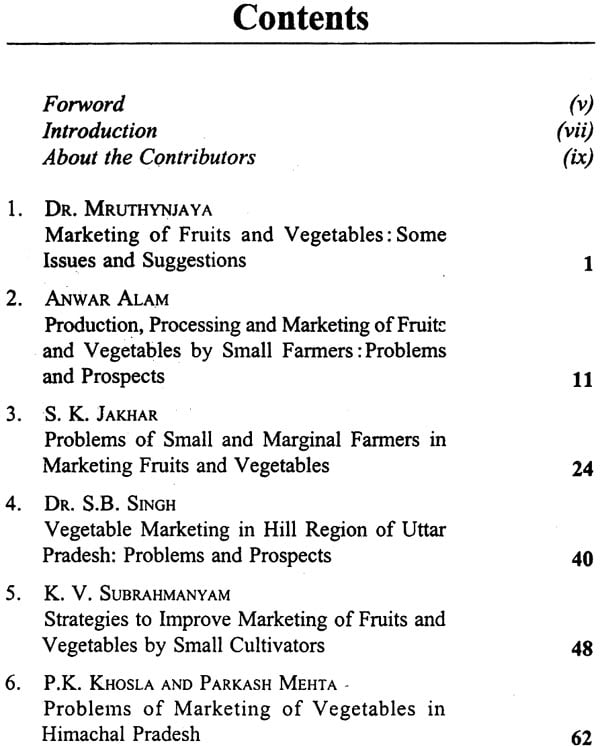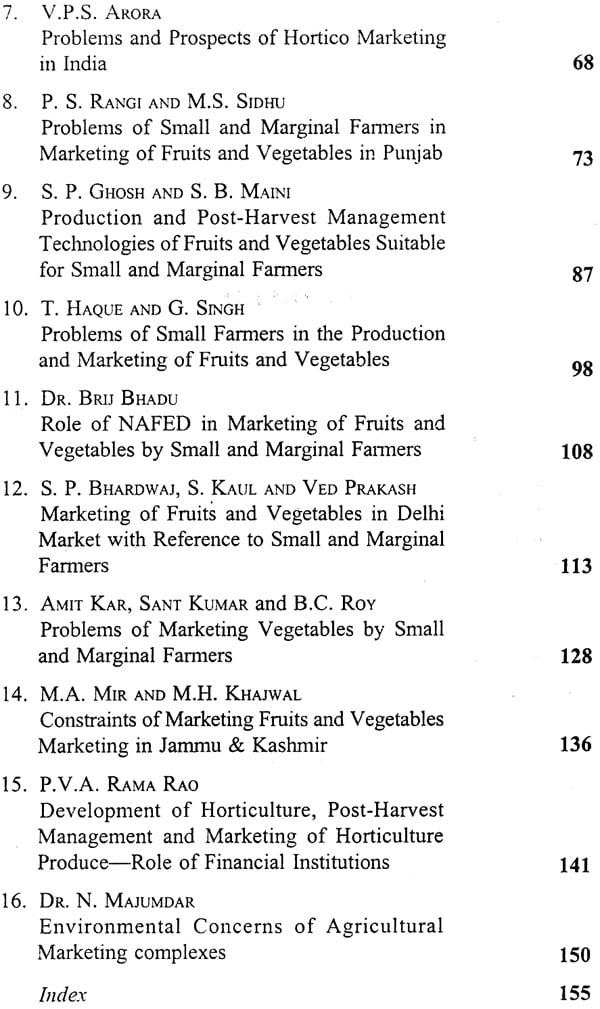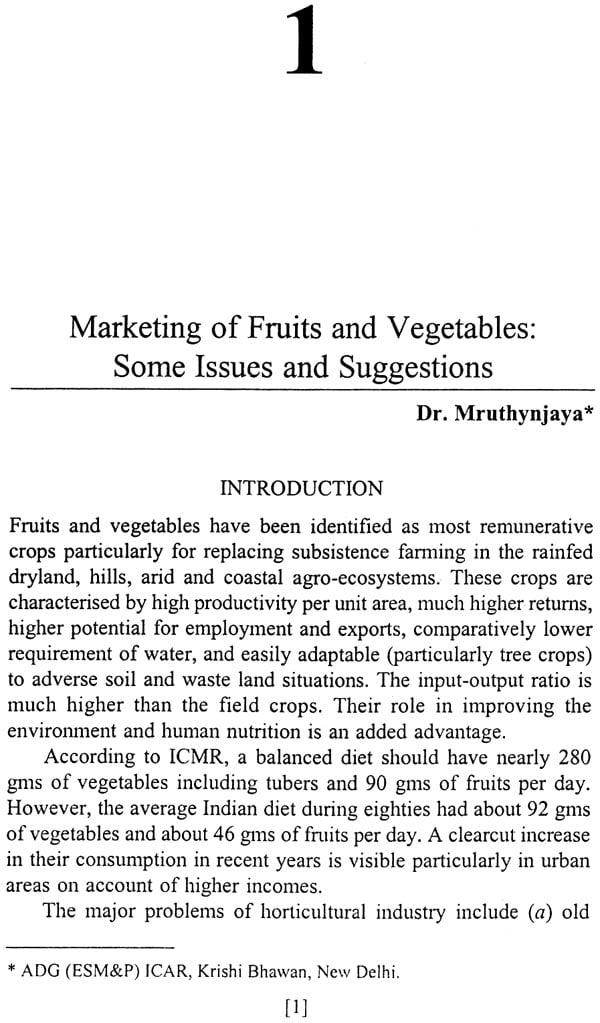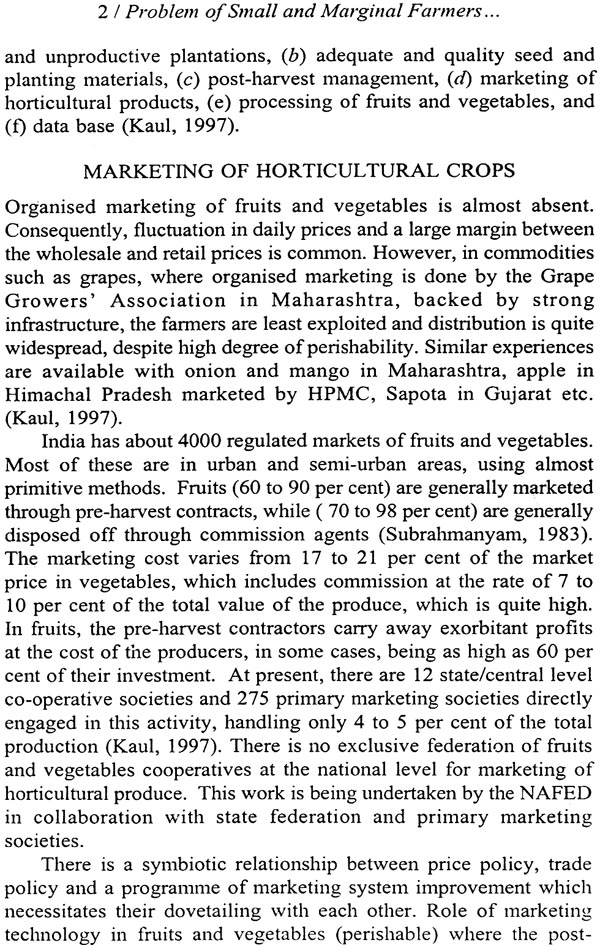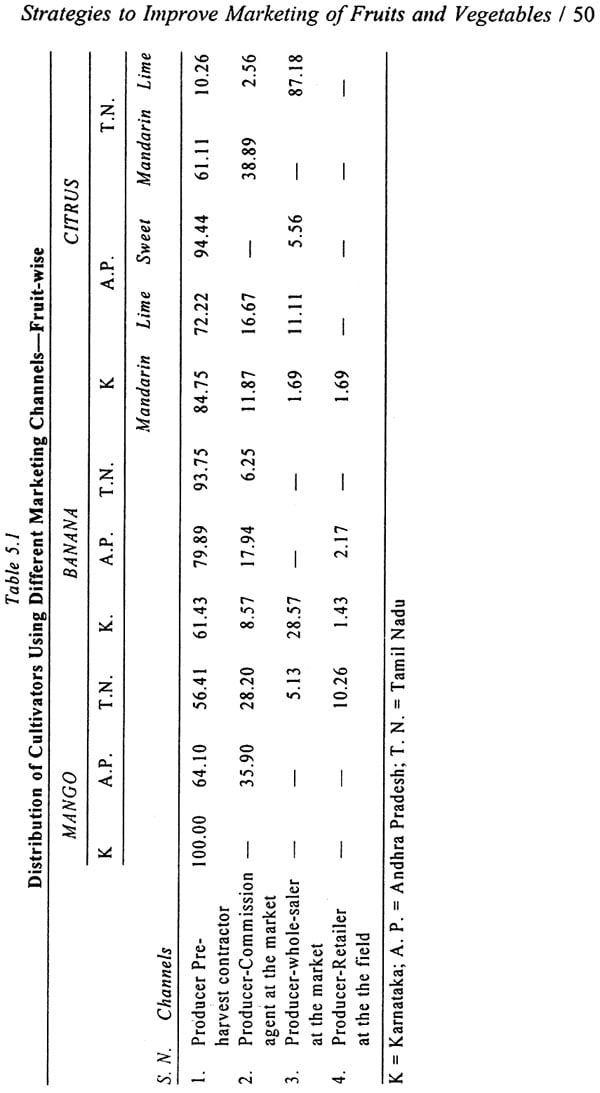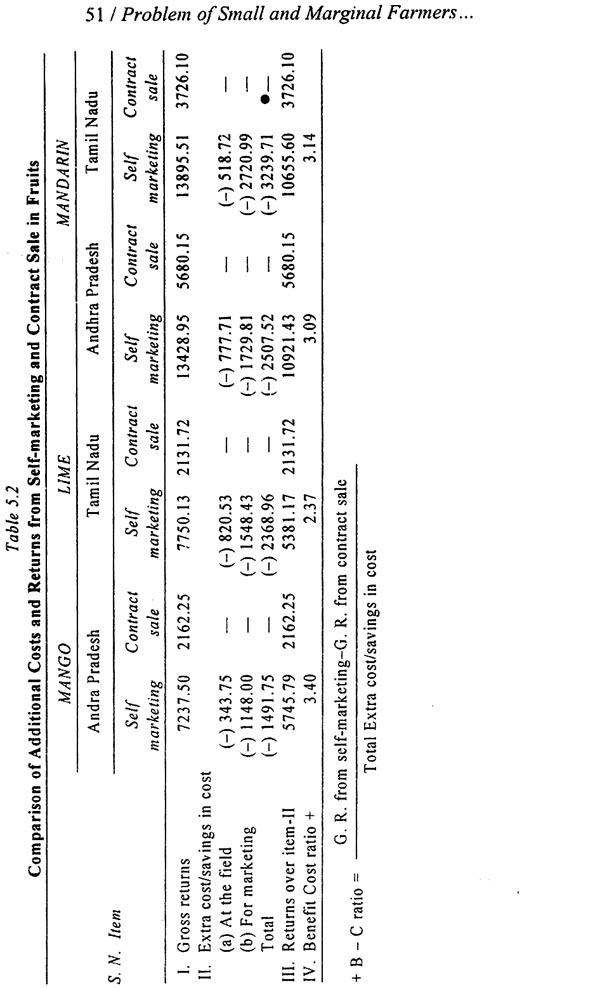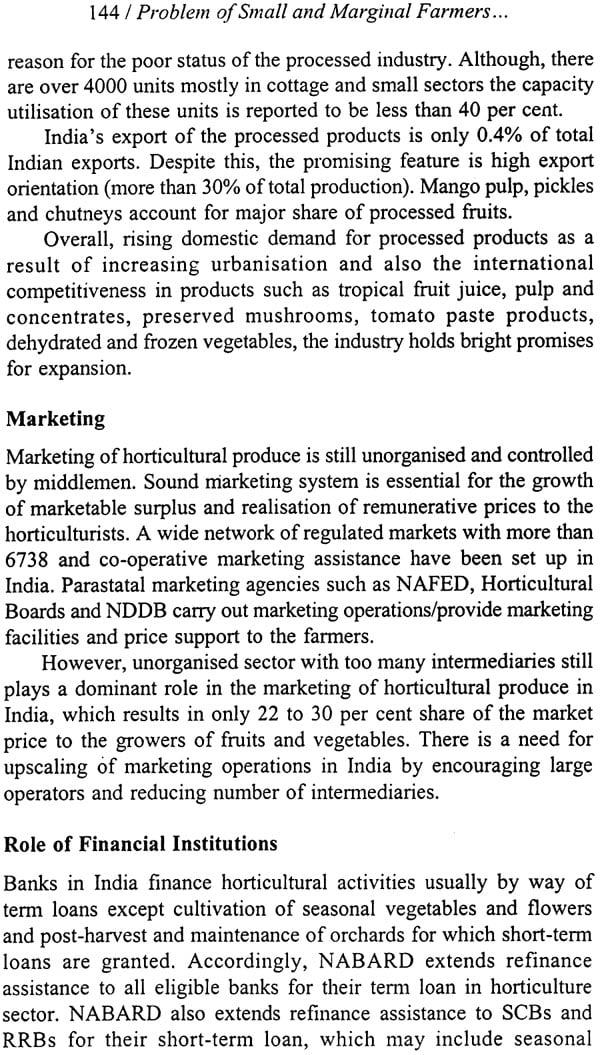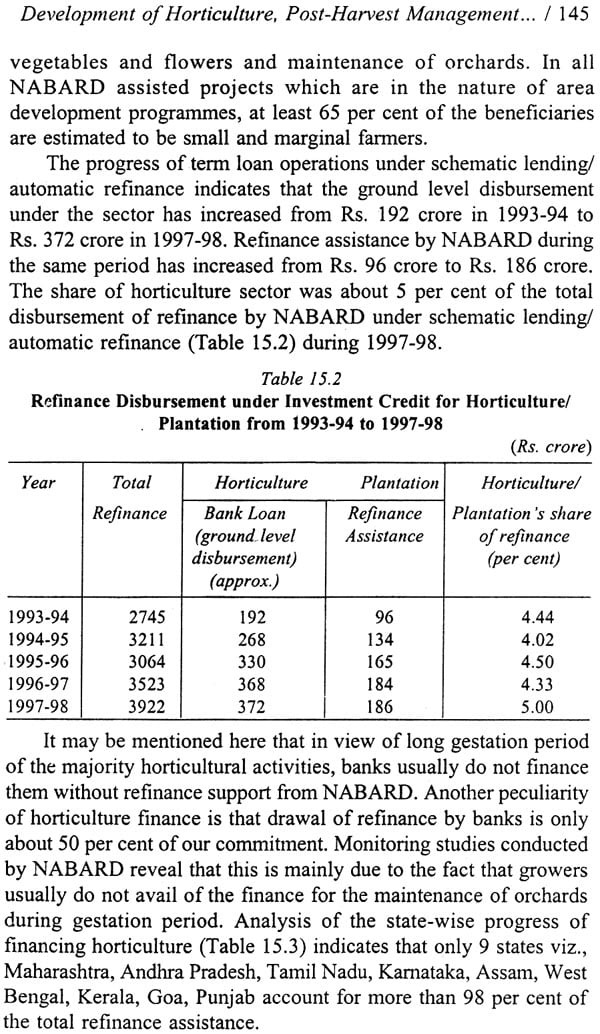
Problems of Small and Marginal Farmers in Marketing Fruits and Vegentables
Book Specification
| Item Code: | NAT105 |
| Author: | Ajit Singh |
| Publisher: | National Publishing House |
| Language: | ENGLISH |
| Edition: | 2001 |
| Pages: | 170 |
| Cover: | HARDCOVER |
| Other Details | 9.00 X 5.50 inch |
| Weight | 340 gm |
Book Description
Fruits and vegetables are important ingredients of a balanced diet. According to the National Commission on Agriculture, the demand for vegetables by 2002 AD will be around 131 million tonnes. This would mean that vegetable production has to be increased. With the agricultural development and increase in the output of farm products, there must as well be a market for these products and a fair price for the farmers. The problem of marketing of agricultural produce has assumed added significance, particularly after the advent of commercialization of agriculture. The call to ‘produce more’ without providing an efficient marketing which could assure a fair return to the producer carries no conviction with the farmer.
Marginal and small farmers of backward community are the main growers of vegetables in the country. They do not get the secured benefit by marketing of vegetables due to high fluctuation in vegetables’ prices due to its unorganised marketing system and perishable nature of the products. The present book explains the problems of marketing of vegetables and fruits, especially by the small and marginal farmers.
It is hoped that these articles will enhance our understanding of this complex system of agriculture marketing.
Born in 1952, Ajit Singh did his post graduation in the year 1970 from Meerut University. He is a qualified Chartered Accountant (1972) having practised for around 18 years after which he has been taking keen interest in social activities, particularly those pertaining to the interest of the farmers.
He has been a member of the India Pulses Development Council functioning under the Ministry of Agriculture, Government of India. He has also been a member of the Managing Committee of Indian Institute of Horticultural Research, Bangalore. He is the Hony. Secretary of the Farmers’ Education & Welfare Society, Managing Director, Farmers’ Co-operative Bank of India and Chairman, Waulden School; New Delhi.
He has previously edited two books namely "Export of Agricultural Commodities : 2000 AD : A Perspective" and "Indian Farmers Almanac 1994".
Fruits and vegetables are important ingredients of a balanced diet. According to the National Commission on Agriculture, the demand for vegetables by 2002 AD will be around 131 million tonnes. This would mean that vegetable production has to be increased. With ine agricultural development and increase in the output of farm products, there must as well be a market for these products and a fair price for the farmers. The problem of marketing of agricultural produce has assumed added significance, particularly after the advent of commercialization of agriculture. The Call to ‘produce more’ without providing an efficient marketing which could assure a fair return to the producer carries no conviction with the farmer. Vegetable growers face two types of uncertainties : (a) farmer can never predict accurately the yield because of fluctuations in rainfall, temperature, humidity, attack of pests and diseases etc. and (b) price uncertainty—— the wide fluctuation in prices of inputs and outputs which affects the net income of the farmers. These variations may be seasonal or random in nature. Factors like price fluctuations influence a great dea! in bringing area under cultivation particularly of cash crops like vegetables. Supply and demand especially of perishable commodities in the market at a point of time determine the market price irrespective of any consideration of the cost of cultivation.
The demand for vegetables in general being more or less constant, the prices depend on the market arrivals. They are lowest when the market arrivals are high and vice-versa. This is so because vegetables are highly perishable and cannot be stored for long. The ultimate earning of a farmer depends entirely on the efficiency of his production and marketing.
The papers presented in the national seminar on "Problems of Small and Marginal farmers in Marketing Fruits and Vegetables" have discussed the various aspects and problems of fruits and vegetables marketing.
The seminar was conceived, organized and coordinated by Shri Ajit Singh, Secretary, Farmers’ Education and Welfare Society with the help of ICAR.
It is hoped that these articles will enhance our understanding of this complex systems of agriculture marketing.
**Contents and Sample Pages**
